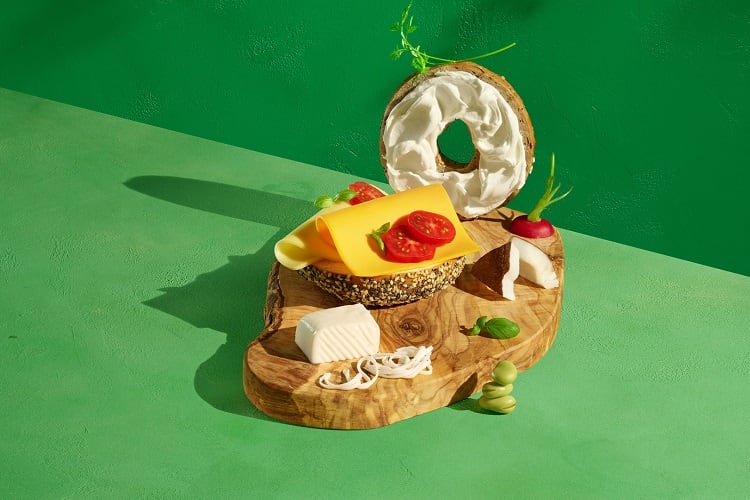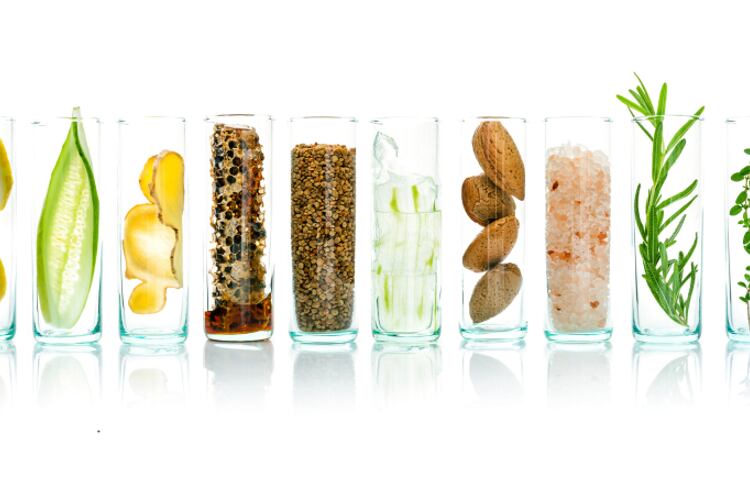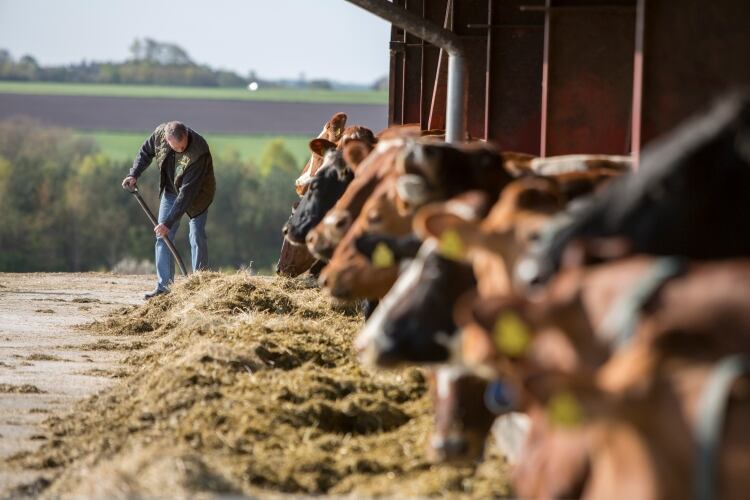Plant-based cheese has long been an attractive option for consumers wishing to turn to low-carbon alternatives, but it’s no secret that manufacturers have struggled to replicate the familiar texture and flavor profile of dairy cheese.
But this could be about to change thanks to a new portfolio of ingredients unveiled by Dutch health and nutrition company, DSM. Developed with dairy-type flavors and concentrates from First Choice Ingredients – the US-based dairy-based flavorings firm which DSM acquired last year – the new offerings promise to deliver a better texture, bite and slicing properties to plant-based cheeses while improving taste and smell.
Using the new ingredients, the company developed several cheese prototypes, which were presented to clients at IFT First earlier this year. “And the reaction to the authentic cheese-like flavor profiles was very positive,” Andre de Haan, business director, cheese at DSM, told DairyReporter.
These flavor profiles are achieved in a multi-stage process. “We start with the base ingredient our customer wants to use and build the taste, texture and color profiles from that base,” De Haan explained. “Common plant-based cheese bases include starches like potato and corn and fats like coconut. Sometimes, these bases are then supplemented with different plant-based proteins like, for example, soy or canola.”
Gellan gums, hydrocolloids, pectins and blends are then used to deliver cheese-like textures and mouthfeel. When mixed with starches and proteins, gellan gums can improve slicing and shredding qualities across the board.
“When it comes to building a distinctive flavor profile, we draw on our broad portfolio of yeast extracts, masking agents, process flavors and top notes,” De Haan added. The top notes, as the name suggests, are what consumers notice first as they bite into or smell a piece of plant-based cheese; these properties enable plant-based alternatives to mimic specific dairy cheese types - and DSM’s new offerings will present a broad range of options, according to De Haan. “This new portfolio enables our customers to create a lot of taste differentiation,” he said.
Finally, color is added through beta-carotene solutions and adjusted to mimic authentic dairy cheeses.
Rich in nutrients, low in salt
Making a delicious product is one thing, but getting the nutritional balance right is particularly key for plant-based cheesemakers whose products compete with nutrient-rich dairy. DSM says it can add nutrients such as vitamins A, B2 and B12 as well as calcium, iodine, senenium and zinc to its premix blends, making plant-based alternatives comparable to traditional dairy products, with no impact on taste. “We typically add 15% of the advised daily intake of specific micronutrients to one serving of plant-based chased,” De Haan told us. “But there is no one-size-fits-all when it comes to nutrition. The recommended blend of vitamins and minerals varies greatly depending on the target consumer, country, label requirements and more.”
Salt has also been a focus for the company, which achieves savory flavors through yeast extracts. The method reduces the need for adding salt to the mix without affecting flavor. “We were cognizant of the fact that many brands are trying to reduce the salt content across their product ranges,” De Haan explained. “We’ve seen a wave of legislation targeting foods high in fat, salt or sugar and plant-based cheese historically relied on high salt levels for a lot of its flavor.
“Our portfolio of taste solutions mean producers can layer a savory taste direction and umami flavor with around 10-25% less salt than traditional plant-based cheese applications.”
DSM’s new portfolio is available in all regions, and early adopters have already taken their own branded cheeses to market. De Haan concluded: “Realistic plant-based alternatives are in high demand and we expect the plant-based cheese market to continue to go from strength to strength.”



